THREE-D SCULPTURES, such as this oversize sofa, dominate Suwanee City Hall’s lobby today, the work of students from North Gwinnett High School. They will remain at City Hall over the summer. The sculptures are from students in Debi West’s art class. For more information, see Notable below.
TODAY’S FOCUS: Encourages “Never” Candidates To Sit This Year’s Voting Out
EEB PERSPECTIVE: More Understanding and Education To Understand Islam
ANOTHER VIEW: Calls for End of Partisan Gerrymandering in Georgia and Nation
SPOTLIGHT: Mingledorff’s
UPCOMING: Suwanee City Hall Comes Alive with Student 3-D Art
NOTABLE: Jackson EMC Foundation Awards $44,485 to Gwinnett Charities
RECOMMENDED: The Water is Wide by Pat Conroy
GEORGIA TIDBIT: Russell Library at UGA Established Without Federal Funds
CALENDAR: Sugar Hill EpiCenter Groundbreaking is June 22
TODAY’S QUOTE: Watch Out to Hanging onto Resentment
MYSTERY PHOTO: Try Your Hand at Locating This Photograph
Encourages “Never” candidates to sit this year’s voting out
By Michael Wood
PEACHTREE CORNERS, Ga. | Our country now has two major-party, presumptive candidates for president: Democrat Hillary Clinton and Republican Donald Trump. Of course, counting only these two omits candidates from other parties, such as the Libertarian and Green Parties, who have little chance to win the presidency, but who may play spoiler roles by pulling votes away from the two major parties’ candidates.
These two presumptive candidates face unusually strong opposition from members of their own parties and even stronger opposition from voters outside of their own parties. Many citizens may find that they have to cast their votes for the proverbial lesser of two evils. Moreover, some Americans may decide to opt out of voting for either of the two major candidates, such as those in the “Never Trump!” camp and those who see Clinton as “Someone I could never vote for.”
Normally, I would say to these “never” voters: “However you feel about these presidential candidates, you should exercise your franchise and vote for the one you believe could govern best or, at a minimum, do the least harm.” Since 2016 is not a normal election year, I encourage the “never” voters to sit this one out, and give those of us with more centrist views a relatively greater say in who becomes our next president, even if we have to hold our noses to vote for one of them.
At this point, whether or not I “like” a particular candidate, I intend to vote for the one I find most suitable to deal with the constitutionally limited responsibilities of the office of the presidency. The Constitution prescribes that the president is the nation’s head of state and head of the federal government. As head of state, the president has the primary role in representing America to other heads of state and to their citizens, to coalitions formed by treaty, and to the United Nations. It also provides that the president is the Commander-in-Chief of the United States Armed Forces and even of state militias when they are mobilized. As Commander-in-Chief, the president leads the country in its defense and war efforts; unfortunately, some have led America into wars not declared by Congress.
I believe America should not elect as president a candidate more likely to speak for us as head of state in a brash, demeaning, and even insulting manner; who might attempt to abrogate existing treaties with other nations; and who might act, as Commander-in-Chief, so rashly that it could destabilize the existing global balance of power and create a greater likelihood of involving our soldiers, women and men, in wars. A president like this could easily offend our allies and friendly neighbors, embolden our avowed enemies, and leave our country on the defensive. And, who knows what kind of judge such a person would nominate for the vacant Supreme Court seat.
Unfortunately, we have such a candidate for president. So, I say “Don’t vote for him. Vote for her instead.”
More understanding, education is necessary to understand Islam
By Elliott Brack, editor and publisher
JUNE 14, 2016 | Here in the South of my youth, marriage outside your religion was frowned on, as it is in many religions. Showing how provincial we were in Middle Georgia, marrying outside your religion generally meant that a Baptist married a Methodist, or that is, some denomination other than your own. This caused quite a stir, and sent mouths a’wagging.
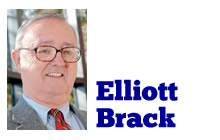 For those of you not born in Gwinnett or the South, this is no joke. This was serious business not too many years ago.
For those of you not born in Gwinnett or the South, this is no joke. This was serious business not too many years ago.
So, yes, how we have changed, especially in Gwinnett. No longer do we associate only within our religion. We have moved beyond socializing and marrying only within our faiths. These days Baptists and Methodists marry someone of the Jewish, or Catholic faiths, and even people from foreign nations, as the South comes into contact with people from distant lands more than ever.
To be objective, we also see young people today marrying at an older age. Some live with others in long term relationships, and not marrying at all. Faith seems to have little to do with these relationships.
And today throughout Dixie, not only do we have many modern churches and synagogues, but now we have the minarets of the Muslim faith among us, and many other religions abounding.
You regular readers know well enough that we seldom get into topics like this, with our normal reflections having to do with politics, growth or local individuals.
What brought this topic to our attention was a visit recently by a person from London, the editor of The Review of Religions, an Islamic publication in print since 1902. He visited us near the end of a two-month trip to this country, with him talking with people all over the United States. The visitor was Syed Amer Safir. We spent an hour talking about his efforts to introduce his religion to people of the world, seeking more understanding of his Islamic religion.
People of the Islamic faith have a tough job explaining their religion to Americans or to the Western world. Their religion is distinctly different from the Western world, their members stand out by dressing differently than Westerners, and therefore they stand out in a crowd. We also admit that for many, prejudice enters the picture.
Our visitor recognizes that “a small minority of the followers of Muhammad” inflict harm on the world, making his job even harder. That’s one reason Mr. Safir’s sect of the Muslim religion, a small group known as the Admadiyya community, founded in 1889, concentrates of making their peaceful efforts to convey the message of Islam. They are followers of Hazrat Mirza Ghulam Admnah, someone from a noble family in India. Among his beliefs is that “all religions were true at their source, but with the passage of time had drifted away from their original teachings.” He upheld the dignity of religion and demonstrated its “relevance to everyone.”
Admnah died in 1908, and there have been five successors of him to the present day.
The meeting with Mr. Safir was thought-provoking. It tells us that in the coming years, right here in Gwinnett, we will see representatives from other parts of the world with messages that are not the same as the old South had.
And as mankind’s diverse individuals react with each other, we’ll see more mixed-marriages, even more outside faiths, than we have today. More understanding and education is necessary, for all of us, on the nation of Islam.
Calls for end of partisan gerrymandering in Georgia, nation
By Jeff Ploussard
JUNE 14, 2016 | Representative democracy and capitalism are two ideas that have made our country a more perfect union. Competition is an essential ingredient in healthy capitalism. The innovations spawned by competition have allowed businesses to grow, prosper and create jobs. The breakup of monopolies has led to lower prices for consumers. Conversely, the system by which we elect our state and federal representatives has become increasingly monopolistic and undemocratic because of a practice called gerrymandering.
In 1812, a political cartoonist and journalist coined the term “gerrymander” to describe the practice of political parties drawing legislative districts to affect electoral outcomes. That year the Massachusetts legislature drew one new state senate district to favor the party of then Governor Elbridge Gerry. The cartoonist caricatured the district to look like a salamander to satirize the bizarre shape of the new district. From then on this partisan practice has been referred to as gerrymandering, a blend of the amphibian and Governor’s name.
To this day state legislatures continue to manipulate the boundaries after each population census to create a political advantage for the party in power. Norman Ornstein of the American Enterprise Institute calls gerrymandering “the pattern of lawmakers choosing their voters rather than voters choosing their lawmakers.”
The result has been more and more “safe” districts that are represented by the extreme wings of each major party. Consequently, competitive or “swing” districts have become extremely rare.
Most political scientists agree that partisan gerrymandering is a contributing factor to the current polarization and dysfunction of government. We have witnessed this most profoundly at the federal level where the legislative and executive branches have been controlled by the opposite parties in recent years. The Congress, fearing no repercussions at the ballot box, have held the President hostage on one issue after another throughout the Bush and Obama years.
Georgia is a classic example of how decades of gerrymandering has led to almost no competition between the parties in state and congressional elections. In the 2014 general election races, 78 percent were uncontested. In other words, in almost 4 out of 5 races, either a Democratic or Republican candidate was not on the ballot.
Uncontested races are a national trend and, even in contested races, the margins of victory have grown as gerrymandering grows. According to The Encyclopedia of American Politics (Ballotpedia.org), a landslide 35.8 percent was the average margin of victory in the 2014 U.S. House races.
So how do we reform the redistricting process in this country?
Today—due largely to grassroots efforts of citizens— several state legislatures and judicial bodies have acted to set up independent commissions to produce electoral maps that are more competitive, fair and representative. From May 24 to May 27, in a U.S. District Court in Wisconsin, a four-day trial was held in a lawsuit filed by voters against the state’s 2012 redistricting plan. Wisconsin awaits the court’s decision and joins a growing national campaign opposed to partisan gerrymandering.
In Georgia and 38 other states, partisan gerrymandering continues to undermine representative democracy. Voters in Georgia need to take a stand now to end gerrymandering by making sure redistricting reform legislation is passed by the General Assembly before the 2020 census. This will guarantee more competitive, fair and equally representative elections for Georgians. Contact your state legislators and governor today (http://openstates.org/ga/legislators/) and demand an end to partisan gerrymandering, monopolistic and undemocratic elections in Georgia.
Mingledorff’s

 The public spiritedness of our sponsors allows us to bring GwinnettForum.com to you at no cost to readers. Today’s featured sponsor is Mingledorff’s, an air conditioning distributor of the Carrier Air Conditioning Company. Mingledorff’s corporate office is located at 6675 Jones Mill Court in Norcross Ga. and is proud to be a sponsor of the Gwinnett Forum. With 34 locations in Georgia, Alabama, Florida, Mississippi and South Carolina, Mingledorff’s is the convenient local source with a complete line for the quality heating, ventilating, air conditioning, and refrigeration parts and supplies you need to service and install HVAC/R equipment. Product lines include Carrier, Bryant, Payne, Totaline and Mitsubishi.
The public spiritedness of our sponsors allows us to bring GwinnettForum.com to you at no cost to readers. Today’s featured sponsor is Mingledorff’s, an air conditioning distributor of the Carrier Air Conditioning Company. Mingledorff’s corporate office is located at 6675 Jones Mill Court in Norcross Ga. and is proud to be a sponsor of the Gwinnett Forum. With 34 locations in Georgia, Alabama, Florida, Mississippi and South Carolina, Mingledorff’s is the convenient local source with a complete line for the quality heating, ventilating, air conditioning, and refrigeration parts and supplies you need to service and install HVAC/R equipment. Product lines include Carrier, Bryant, Payne, Totaline and Mitsubishi.
- For all of your HVAC needs, and information on the products Mingledorff’s sells, visit www.mingledorffs.com and www.carrier.com.
- For a list of other sponsors of this forum, go to: Our sponsors.
- Send us your thoughts: We encourage you to send us your letters and thoughts on issues raised in GwinnettForum. Please limit comments to 200 words. We reserve the right to edit for clarity and length. Send feedback and letters to: elliott@brack.net
Suwanee City Hall comes alive with student 3-D art
The lobby of Suwanee City Hall has been temporarily transformed into an indoor sculpture garden for the summer by North Gwinnett High School (NGHS) art students.
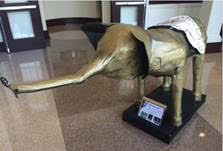 Thirteen sculptures created by advanced 3-D art students will be on display in City Hall throughout the summer. NGHS art teacher Debi West assigned her students to work in groups to create research-based presentations on chosen master artists. The assignment was then extended into a sculpture garden, where the student teams were challenged to create life-sized sculptures in the style of their selected master artist.
Thirteen sculptures created by advanced 3-D art students will be on display in City Hall throughout the summer. NGHS art teacher Debi West assigned her students to work in groups to create research-based presentations on chosen master artists. The assignment was then extended into a sculpture garden, where the student teams were challenged to create life-sized sculptures in the style of their selected master artist.
She says: “Students really had no parameters and worked collaboratively over two-and-a-half weeks to create these incredible sculptures. They included info sheets about their master artists and then they were required to present their sculptures to the class. It is one of the most successful lessons I have taught through the years and I am beyond proud of their hard work, creative minds, and ability to work together to create something so beautiful!”
The sculptures will remain on display in City Hall through the week of August 8, 2016.
North Gwinnett Sculpture Garden Artists and Inspirations:
- Basquiat – Ryan Wilson, Lily Alford and Mark Kleinman;
- Butterfield – Sharon Chong, Alexandra Chuck and Jesse Duff;
- Dali – Collier Thigpen, Steven Chapell and Insiya Ujjainwala;
- Dubuffet – Chelsea McGovern, Erica Wang and Karenna Pletcher;
- Giacometti – Jessica Hicks, Emily Overton and Brynn Fuque;
- Goldsworthy – Matt Haller, Matthew White and Patrick Stern;
- Hepworth – Vince Mancuso, Lauren Maher, Kyairrah Taylor and Gabbi Johnson;
- Nevelson – Eni Adeniji, Debrecca Campbell and Elisha Back;
- Oldenburg – Amber Lim, Niyah White and Brooke Lougher;
- Paik – Patrick Okonkwo, Lauren House, Olivia Packer and Andrea Scibilia;
- Picasso – Ben Renner, Olivia Griffin and Erin Fry; and
- Schwitters – Michael Slusher, Derrick Fluetter and Alex Song.
County to present preliminary plans for Simpsonwood Park
Simpsonwood Park is back in the news, as Gwinnett County Parks and Recreation has come up with early plans to make the park more accessible. The park’s Steering Committee is scheduled to hear a preliminary design on June 16 before adopting a master plan for the park. However, no funding has been allocated to the concept yet, which is expected to eventually come from SPLOST funds.
The overall park concept is for the area to be primarily a passive park, with 1.5 miles of paved walking trails, and parking areas. Already, the county has spent over $900,000 in demolishing several older buildings along the Chattahoochee River. The land was originally purchased by the county for a total cost of $14 million, of which the City of Peachtree Corners contributed $2 million.
Gwinnett ham radio operators plan field day on June 25-26 in Harbins
Members of the Gwinnett Amateur Radio Society (GARS) and the Gwinnett Amateur Radio Emergency Services (ARES) will be participating in the national Amateur Radio Field Day exercise on June 25–26 at Harbins Park, 2995 Luke Edwards Road Dacula.
Since 1933, ham radio operators across North America have established temporary ham radio stations in public locations during Field Day to showcase the science and skill of Amateur Radio. This event is open to the public and all are encouraged to attend.
For over 100 years, Amateur Radio — sometimes called ham radio — has allowed people from all walks of life to experiment with electronics and communications techniques, as well as provide a free public service to their communities during a disaster, all without needing a cell phone or the Internet. Field Day demonstrates ham radio’s ability to work reliably under any conditions from almost any location and create an independent communications network. Over 35,000 people from thousands of locations participated in Field Day in 2015.
Sean Kutzko of the American Radio Relay League, the national association for Amateur Radio says: “It’s easy for anyone to pick up a computer or smartphone, connect to the Internet and communicate, with no knowledge of how the devices function or connect to each other. But if there’s an interruption of service or you’re out of range of a cell tower, you have no way to communicate. Ham radio functions completely independent of the Internet or cell phone infrastructure, can interface with tablets or smartphones, and can be set up almost anywhere in minutes. That’s the beauty of Amateur Radio during a communications outage.”
He adds: “Hams can literally throw a wire in a tree for an antenna, connect it to a battery-powered transmitter and communicate halfway around the world. Hams do this by using a layer of Earth’s atmosphere as a sort of mirror for radio waves. In today’s electronic do-it-yourself (DIY) environment, ham radio remains one of the best ways for people to learn about electronics, physics, meteorology, and numerous other scientific disciplines, and is a huge asset to any community during disasters if the standard communication infrastructure goes down.”
Anyone may become a licensed Amateur Radio operator. There are over 725,000 licensed hams in the United States, as young as 5 and as old as 100. And with clubs such as Gwinnett Amateur Radio Society (GARS) www.GARS.org it’s easy for anybody to get involved right here in Gwinnett County. If you have a keen interest in Emergency Services, the Gwinnett County Amateur Radio Service (ARES) has additional information at www.gwinnettares.org.
- For more information about Field Day, contact Norm Schklar, WA4ZXV, WA4ZXV@arrl.net or visit www.arrl.org/what-is-ham-radio.
Jackson EMC Foundation awards $44,485 to Gwinnett charities
The Jackson EMC Foundation board of directors awarded a total $99,735 in grants during their May meeting, including $44,485 to organizations serving Gwinnett County residents.
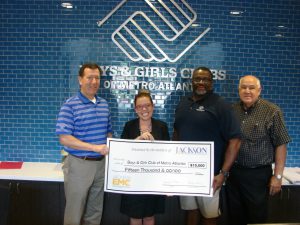
A $15,000 grant from the Jackson EMC Foundation will help the Boys & Girls Clubs of Metro Atlanta’s Lawrenceville Unit provide homework help and specialized tutoring to improve club members’ math and reading skills. Show are (from left) Jackson EMC District Manager Randy Dellinger, BGCMA representative Siobhan Alvarez, BGCMA Lawrenceville Unit Executive Director John Reid and Jackson EMC Foundation board member Jim Puckett.
$15,000 to Boys & Girls Clubs of Metro Atlanta’s Lawrenceville Unit for its Homework Help/Afterschool Program, which uses staff and volunteers to provide club members with homework help, specialized tutoring and high-yield learning activities to improve baseline math and reading skills.
$14,985 to Boy Scouts of America – Northeast Georgia Council to provide uniforms, handbooks and summer camp fees that will help underprivileged youth participate in scouting, teaching them to make ethical choices and promoting citizenship, leadership, mental and physical fitness.
$5,500 to FOCUS (Families of Children Under Stress), a nonprofit agency serving children, teens and adults with developmental disabilities and their families, to help provide Camp Hollywood in Lawrenceville, a unique summer day camp where children with developmental disabilities can build social skills, self-respect, character and community living skills.
$5,000 to Quinlan Visual Arts Center in Gainesville to enable about 40 disadvantaged, but exceptional students with exemplary artistic skills entering 1st-8th grades at Title I schools in Barrow, Hall, Jackson, Gwinnett and Lumpkin counties to attend one-week Art Camp sessions.
$4,000 to the Disabled American Veterans – Chapter 92 for its Veterans Relief Fund, which provides assistance for emergency needs such as rent, medical bills, groceries, or a bus ticket home to veterans and their families.
Lilburn, Loganville students among those on Washington, D.C., trip
About 60 students from around Georgia are headed this week to Washington, D.C., to present their historical research projects for National History Day. Held at the University of Maryland in College Park, the annual Kenneth Behring National Contest serves as the national finals for student winners from each state and several countries.
Students from Lilburn and Loganville are among the group representing Georgia at the nationals: Caleb Frazier, Kelsey Howlett, and Nathan Wright, of Scholars Guild Homeschool; and Tariqah Abdul-Malik, Aishah Sherif, and Faduma Abdulkadir, of Al Falah Academy. Alternates for the Georgia delegation include Elias Davis and Anna Yount, of Scholars Guild Homeschool.
A few spots still remain for teachers in the “Bootcamp: National History Day in the Classroom” workshop, to be held July 11-14 at LaGrange College.
- For more information, or to register, see http://www.lagrange.edu/academics/history/nhd/teacher-registration.html.
The Water is Wide
A novel by Pat Conroy
 While not the first of Mr. Conroy’s books, it was my introduction to his work. It opens as the author has graduated from The Citadel, accepting a temporary position on an isolated South Carolina island, teaching in a ramshackle school. His charges are disengaged black children who he soon finds don’t know what state they live in, cannot count or say their ABCs. His quest to bring them into modern times from their Gullah past is a series of challenges that often run afoul of the school superintendent and the local school mistress. His efforts bear fruit as the children gradually become aware of a much larger world and their potential part of it. Eventually, his unconventional teaching style results in his dismissal, but his love for the children who mainstream society had left behind shines. It should be Essential reading for anyone considering the teaching profession.
While not the first of Mr. Conroy’s books, it was my introduction to his work. It opens as the author has graduated from The Citadel, accepting a temporary position on an isolated South Carolina island, teaching in a ramshackle school. His charges are disengaged black children who he soon finds don’t know what state they live in, cannot count or say their ABCs. His quest to bring them into modern times from their Gullah past is a series of challenges that often run afoul of the school superintendent and the local school mistress. His efforts bear fruit as the children gradually become aware of a much larger world and their potential part of it. Eventually, his unconventional teaching style results in his dismissal, but his love for the children who mainstream society had left behind shines. It should be Essential reading for anyone considering the teaching profession.
— Karen Burnette Garner, Dacula
An invitation: what books, restaurants, movies or web sites have you enjoyed recently? Send us your recent selection, along with a short paragraph (100 words) as to why you liked this, plus what you plan to visit or read next. –eeb
Russell Library at UGA established without federal funds
The Richard B. Russell Library for Political Research and Studies is a center for documenting and promoting the study of Georgia’s modern political history, policy, and culture.
 When the Richard B. Russell Foundation was established at the University of Georgia in 1970, its mission was to collect and preserve materials that document the life and career of Richard B. Russell Jr., U.S. senator from Georgia from 1933 to 1971. Since, what began as a memorial to one of the most influential senators in modern times has evolved into a premier repository for papers of individuals and organizations. The library’s holdings document the American political system and support research in politics and policy in Georgia and the nation.
When the Richard B. Russell Foundation was established at the University of Georgia in 1970, its mission was to collect and preserve materials that document the life and career of Richard B. Russell Jr., U.S. senator from Georgia from 1933 to 1971. Since, what began as a memorial to one of the most influential senators in modern times has evolved into a premier repository for papers of individuals and organizations. The library’s holdings document the American political system and support research in politics and policy in Georgia and the nation.
The Russell Library has been compared in importance to the presidential libraries, but it covers a broader range of subjects and a much longer period of time than most presidential collections. Its holdings demonstrate the breadth and diversity of Georgia’s political life for more than a century.
Long touted as a model for congressional and legislative archives, the Russell Library is the first repository to document modern politics and policy development in the Southeast, and it is still the only repository in Georgia to do so exclusively. Local, national, and international researchers use the Russell Library’s collections widely.
During the 1960s representatives of the University of Georgia Libraries corresponded with Senator Russell on several occasions about donating his papers. In 1969 a group of Russell’s friends persuaded him that a foundation should be established to document his life and career. In June 1970 the Richard B. Russell Foundation was incorporated under the laws of the state of Georgia.
Unlike the collections of some of Russell’s contemporaries, such as Hubert Humphrey, Everett Dirksen, and Carl Albert, the Russell Library never received federal appropriations. After the senator’s death in 1971, the Russell Foundation and its first chair, U.S. senator Herman E. Talmadge, raised a significant endowment to establish the library and to fund a Russell chair in history at the university. Working with the University System Board of Regents and University of Georgia officials, the foundation trustees agreed to locate the Russell Library on the ground floor of the university’s main library, with its own entrance. In 1974 the executors of the Russell estate turned over the Russell collection to the foundation, which then transferred it to the university. In June 1974 the Russell Library was finally dedicated.
(To be continued)
- For more from the Georgia Encyclopedia online, go to http://www.georgiaencyclopedia.org
What is this series of buildings?
This edition’ Mystery Photo looks something like an insect among this scene. Where was it taken, and what is this series of buildings? Send in your thoughts to elliott@gwinnettforum.com and be sure to include your hometown.
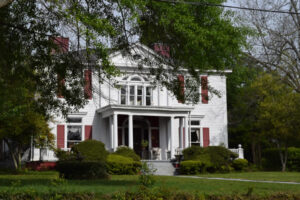 Not a single reader recognized last edition’s Mystery Photo. It was a real stumper, and closer than you might imagine. It was The Lambdin-McCarthy house (1849) in Barnesville, Ga., and comes from Walter Geiger in Barnesville. It is an Antebellum Georgian Revival style home, used as hospital for wounded Confederates during the Civil War. A hidden tunnel exists under the house and runs toward the adjacent railroad track. The house was later owned by the late Charles E. Lambdin, founder and first president of Gordon Institute, now known as Gordon College. The house is now a bed and breakfast.
Not a single reader recognized last edition’s Mystery Photo. It was a real stumper, and closer than you might imagine. It was The Lambdin-McCarthy house (1849) in Barnesville, Ga., and comes from Walter Geiger in Barnesville. It is an Antebellum Georgian Revival style home, used as hospital for wounded Confederates during the Civil War. A hidden tunnel exists under the house and runs toward the adjacent railroad track. The house was later owned by the late Charles E. Lambdin, founder and first president of Gordon Institute, now known as Gordon College. The house is now a bed and breakfast.
Fifth Annual Flag Day in Snellville, Tuesday, June 14, will be celebrated at 10 a.m. on the steps of Snellville City Hall. The theme is “United We Stand.” Refreshments will be served in the Community Room following the program.
Groundbreaking at the new Centerville Senior Center, will be Tuesday, June 14, at 1 p.m. The center is located at 3025 Bethany Church Road in Snellville, and is presently connected to the Library. The new Center will be built by Hogan Construction Group LLC at a cost of $2.24 million. Funding came from the 2014 SPLOST program. The building will consist of 8,500 square feet. It is anticipated to be completed by mid 2017.
Author Brad Thor will be in Gwinnett on June 17 at the Christ the King Lutheran Church, 5375 Peachtree Parkway for a book signing and discussion. Presented by the Gwinnett County Public Library, the program will begin at 7:30 p.m. Thor’s latest book is Foreign Agents, a non-stop thrill ride that is filled with action, intrigue, and edge-of-your-seat suspense, reaffirming Thor’s position as the “master of thrillers.” Books will be available for purchase and signing thanks to The Books for Heroes Foundation. For more information, visit gwinnettpl.org.
 (NEW) Groundbreaking Ceremony of the new EpiCenter in Sugar Hill, Wednesday, June 22 at 11 a.m. The Center is located at 5009 West Street in Sugar Hill. The event is hosted by the mayor and city council of Sugar Hill and also by its Downtown Development Authority.
(NEW) Groundbreaking Ceremony of the new EpiCenter in Sugar Hill, Wednesday, June 22 at 11 a.m. The Center is located at 5009 West Street in Sugar Hill. The event is hosted by the mayor and city council of Sugar Hill and also by its Downtown Development Authority.
 Photography Exhibit on India and the Taj Mahal is open through July 27 at the Collins Hill Library, 455 Camp Perrin Road in Lawrenceville. The work is by GwinnettForum Roving Photographer Frank Sharp. The library standard hours are now Monday through Thursday from 10 a.m. until 8 p.m., on Friday and Saturday from 10 a.m. until 5 p.m., and on Sunday from noon until 5 p.m.
Photography Exhibit on India and the Taj Mahal is open through July 27 at the Collins Hill Library, 455 Camp Perrin Road in Lawrenceville. The work is by GwinnettForum Roving Photographer Frank Sharp. The library standard hours are now Monday through Thursday from 10 a.m. until 8 p.m., on Friday and Saturday from 10 a.m. until 5 p.m., and on Sunday from noon until 5 p.m.
GwinnettForum is provided to you at no charge every Tuesday and Friday. If you would like to serve as an underwriter, click here to learn more:
- MORE: Contact Editor and Publisher Elliott Brack at: elliott@gwinnettforum.com


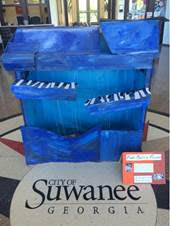
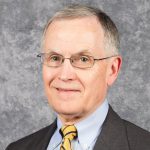
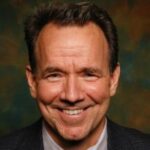
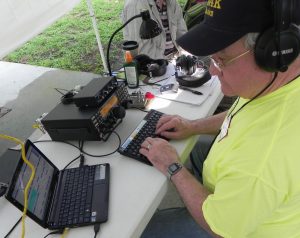
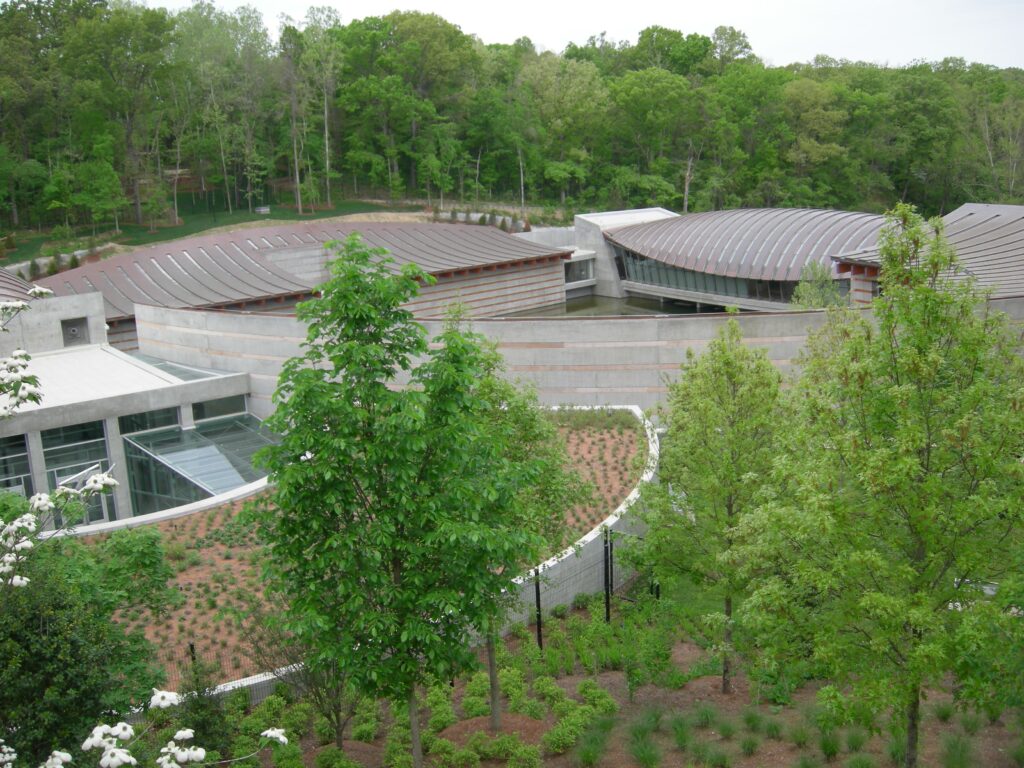







Follow Us